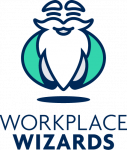From 1 November 2021, employers have to comply with new ‘super stapling’ rules as per the Treasury Laws Amendment (Your Future, Your Super) Bill 2021 (‘Your Super, Your Future law’) which amends the Superannuation Guarantee (Administration) Act 1992. The ‘Your Super, Your Future’ Bill was passed on 22 June 2021, with the amendments regarding ‘super stapling’ to take affect from 1 November. So, what is super stapling? And how does it affect employers?
The New Law: What is Super Stapling?
The ‘Your Super, Your Future’ amendments aim to reduce the number of new default super accounts being opened in an employee’s name when they change employers. To do this, the Federal Government has introduced a ‘stapled’ super fund. A ‘stapled’ fund will be a superfund account which follows the employee through all of the changes in their employment. The ATO will determine what each employee’s stapled super account is. Therefore, from 1 November, when an employee starts employment with an employer, the employer must check with the ATO what the employee’s stapled super account is.
Importantly, this is only for employees who start their employment after 1 November 2021.
Employers do not need to check if all their current staff have a stapled account. Further, employers do not need to check the employee’s stapled fund, if the employee has provided a fund of choice through the standard choice superannuation form.
How Does This Impact Employers?
The new changes mean that employers must change their payroll processes to reflect the added step in choosing an employee’s superannuation fund.
Therefore, where you have an employee who has starts from now, you should:
- Provide your new employee a superannuation choice form
- Where a fund is nominated – this will be the employee’s choice fund and contributions must go to this account
- Where a fund is not nominated – go to the next step
- Lodge a request with the ATO to determine the employee’s stapled superannuation fund
- The obligation is on the employer to make a request where the employee does not provide a choice fund. To learn how to lodge a request with the ATO, you can visit this guide.
- Where the ATO provides the details of a stapled fund – this becomes the fund that employers must make contributions towards
- Where the ATO advises that the employee does not have a stapled fund – go to the next step
- Default Fund selected
- Where the ATO advises the employer that there is no stapled fund, the employer can make contributions to their default fund.
- Provided that the default fund meets the necessary choice of fund rules (ie it is a MySuper product and is specified as the employer fund in the standard choice form, etc), then contributions made to the employer default fund will be in line with choice of fund requirements.
How Does Super Stapling Apply if There is an Enterprise Agreement (‘EA’)?
What you need to do if an EA applies to your workplace depends dependent on if the EA was made before or after 1 January 2021.
Enterprise Agreements made before 1 January 2021
This applies where you have an employee joining after 1 November 2021, and they become party to an EA which was made before 1 January 2021.
In this case, the fund which is nominated under the EA fits into a same category as an ‘employer default account’ in the process outlined above. That is, an employer can only make super contributions to the EA specified super account where the new employee does not have a chosen fund or a stapled fund. This means that even if there is EA nominated superfund, the employer:
- must provide a superannuation choice form to the incoming employee; and
- where they do not choose a fund, they must check if they have a stapled fund.
Where the employee has neither a choice fund, nor a stapled fund, the fund which the employer was making contributions into/the EA fund may be chosen.
Note here that an employee can choose the fund nominated in the EA.
Enterprise Agreements made on or after 1 January 2021
This applies where you have an employee joining after 1 November 2021, and they become party to an EA which was made on or after 1 January 2021.
EAs which were made after 1 January 2021 are subject to the superannuation changes which were made last year in the Treasury Laws Amendment (Your Superannuation, Your Choice) Act 2020. Under this, new employees would need to be given a choice of super form even if there is a stipulated superannuation fund in the EA. Further, a choice superannuation form must be provided if an existing employee requests for one, or when there is a new workplace determination or EA.
In short, where there is an EA which was made after 1 January 2021 –
Employee Start Time
Process to Be Followed
Employee started before 1 Jan
A choice superannuation form must be provided if they request it
Employee who started after 1 Jan 2021
A choice superannuation form must have been provided
Employee who started after 1 Nov 2021
A choice superannuation form must be provided. If no fund is chosen, a request to check their stapled fund must be made to the ATO.
If there is no stapled fund, then the employer can contribute to the EA fund.
When there is a new EA or workplace determination
A choice superannuation fund must be provided to all employees. If no fund is chosen, a request to check their stapled fund must be made to the ATO.
If there is no stapled fund, then the employer can contribute to the EA fund.
What Next?
From here, it is important for employers to determine how they will alter their existing payroll processes. Questions to consider may include:
- Have we included the provision of a super choice form in the employee’s induction?
- Who will be responsible for making requests to the ATO to find stapled funds?
- Will there need to be changes in how super guarantees are paid if the default fund is used less?
If you have any questions on how the new super stapling may affect your business or advice on implementing processes – feel free to reach out!
There have been a number of changes to payroll in short succession including increased wages, super contributions and more (see a summary here from June). Therefore, if you need advice or peace of mind about your compliance don’t hesitate to contact us!




0 Comments Leave a comment
Comments are closed.